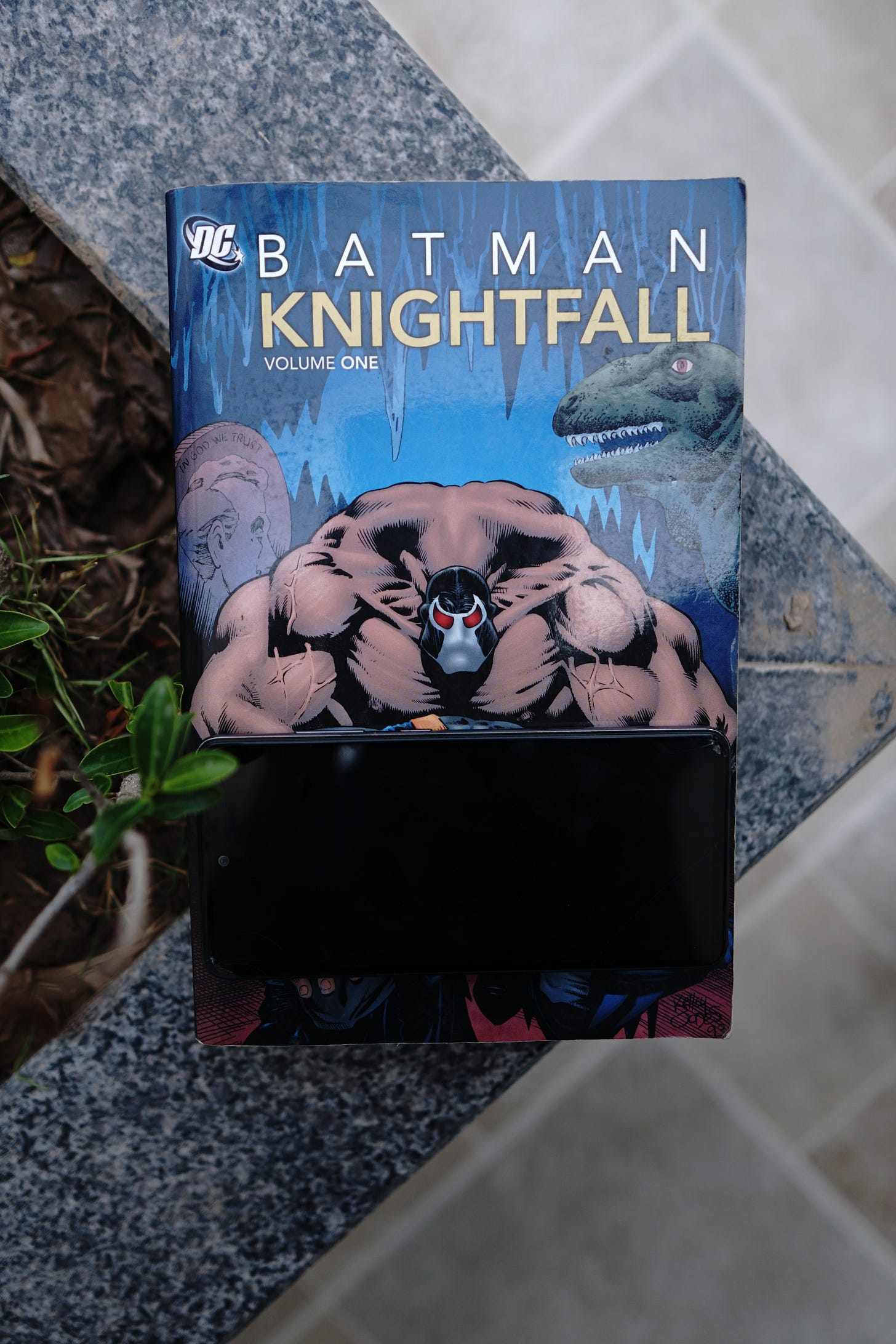I know - there is an abundance (pun intended) of (mostly) well-meaning content out there that exalts the virtues of developing an ‘abundance mindset’ for material success. Amidst the Internet’s roar of ‘more is better’, there are also a few formidably loud chants of ‘you do not need stuff to be happy!’. What I want to share today however, is an idea which perhaps philosophically resides mid-way on the continuum of material stuff’s meaningful value. To expand on this idea, I’d like to open a discussion around:
The Problem of Abundance: I posit that while material ‘stuff’ certainly is good and interesting, its abundance masquerades as our friend while insidiously robbing us of the pre-abundance-specialness that existed in our experience of scarcity. It is the loss of such sanctity of meaningful experience that abundance brings about.
Why it is not our fault that we are easily fooled by abundance’s false promises.
My journey so far trying to implement what I’d like to call ‘Planned Scarcity’ (PS), to reclaim specialness in the experience of stuff.
1. The Problem of Abundance
For sure, there are types of abundance that are unarguably great for the survival of the human race: staple food items, energy, medical supplies etc. The context within which abundance poses a toxic threat to wholesome experiences however, is in the realm of boredom-killing, (ostensibly) pleasure-inducing material and entertainment options available to us.
An incessant and seemingly infinite flow of stimulation, sensuality, novelty, engagement, distraction, attraction, and fascination surrounds us. An ocean of attractive stuff - physical and in the form of digital content - is at our disposal.
And the vastness of this ocean dilutes the intrinsic specialness of each small slice to the point of near-extinction - specialness that was ripe and available for joyful experiencing when each constituent part existed in a vacuum, on its own, beckoning you to appreciate its subtle intricacies in all its glory.
What is one film to us anymore? One song? One book? One t-shirt at one shop at one shopping mall in one city?
To feel a sense of what we have lost, imagine a scenario where you only had a couple of famous comic books to keep you company in times of boredom (in a world where you did not have access to 100,000 comics on your phone). How deeply involved would you be with the one you picked up? When you were acutely aware of how tremendously special it was to behold the result of thousands of hours of creative endeavour? That this one slice of the ocean, was an ocean unto itself, with a depth whose recognition had been lost in the anonymity of the crowd? And what of the extent to which your mind would be sharply attuned to every nuance of the experience, the one-pointedness of attention our species enjoyed until recently?
In essence, if you have every comic book, you have no comic book.
2. But it is Not Our Fault
We are like the Australian Jewel Beetle. (In fact, we are like every other evolved creature. The only thing differentiating us is the holier-than-thou attitude which insists we are not like every other creature).
As Donald Hoffman explains in his TED talk, nature (DNA) finds rule-of-thumbs to quickly make decisions for survival and replication. This system is not always accurate. The male Australian Jewel Beetle’s DNA says: “You need to mate with a female! A female has a dimpled, glossy, and brownish exterior!”. And as it happens, a certain beer bottle in Australia has just the same kind of dimpled, glossy, and brownish exterior - and the males all try to mate with it, swarming the bottles.
While our egos - inflated by how we prize our “infallibly” exquisite intellect - would patronisingly analyse and laugh at the poor beetle’s simple-mindedness and ignorance, our behaviour, when we find pleasure devouring an ice-cream cake is exactly like the beetle expecting offspring from a bottle. Our DNA says (in its simple-minded assumption that sugar only occurs in fruits and veggies): “You need sugar molecules to survive! Anything sweet is a sugar molecule, it’s rare in nature, consume all you can find!”. And as it happens, a cake (an entity unknown to our DNA just like the beer bottle was unknown to the beetle’s DNA), is NOT a fruit, but has the same lovely molecules. And we feel the joy of that sweetness, like we are doing the best thing in the world for ourselves.
Abundance of stuff that fascinates and is enjoyable, follows a similar principle - we are biologically drawn towards novelty and excitement. When my phone offers much more novelty than my printed comic book, why in the world would I naturally NOT pick the comic book.
While I am hardly sold on us being “special” in any way, our colossal pre-frontal cortexes do give us an edge in analysing some of our behaviour objectively. Daniel Kahneman said that we are blind to our blindness and for the most part, I agree. However we do benefit from studying, and consequently changing, behaviour.
3. Planned Scarcity
We would hardly be able to fool our brain into thinking there is only one beautiful song available on Spotify, and then forcing it to treat it with the respect it warrants. Therefore, we’d have to plan for artificially-induced scarcity and keep our brains in line - for their own good.
So far for me, a small step in the direction of reclaiming the lost sanctity of experiencing stuff deeply, has looked like this:
Food
Resisting the allure of trying a little of all the 5 different lunch options in the fridge.
Result: The humble potato salad has a chance to be centre-stage. Shyly and tentatively emerging from its shell, realising it can be a lead singer just like the beef steak is, as long as its beauty is exclusively admired without distraction.
Music
Using an old smartphone with no streaming service or social app installed. Copying audio files from a whole album into it so that in essence, it becomes a record player with one record inside.
Result: No skipping a song, there are only a few to go by, watch it buddy! Oh wow, this song I wanted to skip has its own thing going (now that I have endured 3 seconds of its boring start). I am glad I persisted. I had to.
Videos and Films
Experimenting with an Android tablet with only one streaming service (Netflix) and no social media.
As opposed to YouTube (not to mention even worse options like Instagram and the brain-killer TikTok), Netflix does not behave like a high-on-cocaine commission-based salesman yelling: “look at this! Have you checked this out? Look at this irresistible video thumbnail, click it, so that another list of click-hungry thumbnails appears next to that video! Let me take you on a ride where you’ll get to see every video and in essence watch none and feel shit at the end! Watch now. Watch later? Make a playlist. Save for later. Consume. Do something dammit! NOW!”.
Netflix is a tasteful curator. And it is about longer formats - it still respects the fact that you want to invest time in a 120 minutes film, and that it would not make sense to keep pulling the whole screen up with an arrow appearing at the bottom suggesting “more is available” while Anthony Hopkins is trying to showcase the result of years of work. He certainly would not appreciate an arrow pointing to “check out Michael Cain!”, while Anthony’s movie is on your screen.
Result: When I am in a room with only that experimental Android tablet, I have to accept the sad truth of not having access to YouTube and Instagram’s comfortable numbness that validates my reluctance to make a decision and commit to a video. Thus, I choose a film on Netflix, and in the end, sadness turns to enjoyment. I committed! I saw it through! And I was able to properly admire a slice of the ocean and the beauty it had to offer.
Your Hacks?
Planned Scarcity may already be working its way into your lives in novel ways. I reckon you have found ingenious ways to reclaim the sanctity of experiences lost to abundance.
I’d love to hear from you all! Let us give the gift of scarcity to each other in this community!








Amazingly put.. I think planned scarcity is a necessity to slow ourselves down and really take in why life has to offer, the good and bad. I try to practice planned scarcity in my relationships by keeping my phone at bay when I am with friends or my partner. This is also basic manners but is sadly lost to many :p